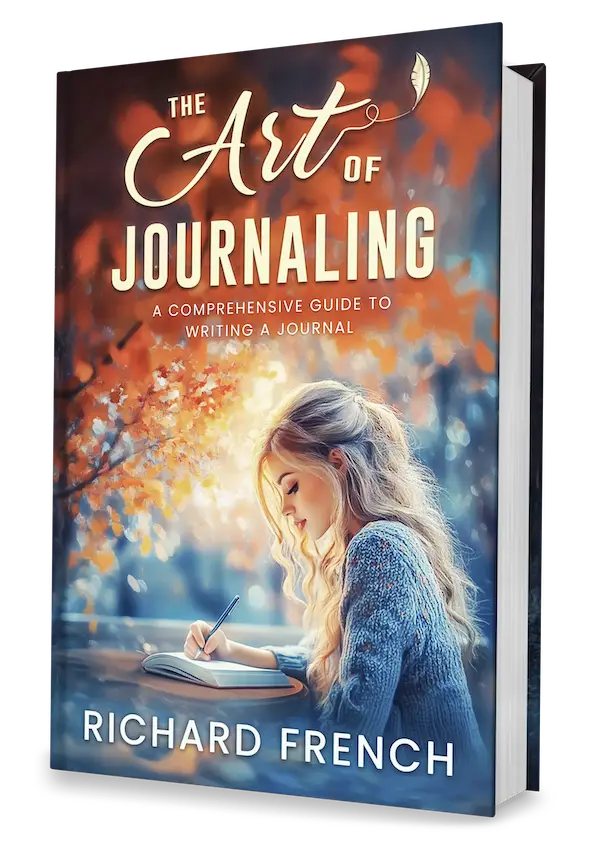Therapeutic Writing Benefits
Writing for therapy, particularly expressive writing, packs some serious punch when it comes to improving mental health. Loads of studies have shown how Therapeutic Writing Benefits can boost your well-being.
Healing Effects of Expressive Writing
Expressive writing isn’t just scribbling down words—it’s a way to feel better emotionally and mentally. When people dig deep and write about things that really matter to them, especially after going through tough times, the Therapeutic Writing Benefits are clear. It’s like opening a window to let the fresh air of emotional clarity flow through.
Research tells us that when folks pour their hearts about their worst experiences for a mere 15 minutes over four days, they end up healthier than those who just write about everyday stuff (Positive Psychology). This kind of writing helps them figure things out, see stuff differently, and discover new truths about themselves.
| Writing Topic | Health Outcome Improvement (%) |
|---|---|
| Traumatic Experiences | 15 |
| Neutral Topics | 3 |
Apart from healing the heart, writing can lift your spirits, help you grow, and even make sense out of the chaos life sometimes throws. If you’re looking for ways to channel your writing, check our tips on shadow work journaling and self discovery journal prompts.
Journaling Intervention Studies
Loads of research has shown how journaling can make waves in the world of therapy. A deep dive into the numbers shows a straight-up 5% improvement in health scores for those doing the journaling thing compared to those who don’t.
Different types of mental setbacks see their own kind of magic with journaling:
- Anxiety gets a 9% kick down.
- PTSD chills out by 6%.
- Depression backs off by 2%.
| Mental Health Condition | Reduction in Patient Scores (%) |
|---|---|
| Anxiety | 9 |
| PTSD | 6 |
| Depression | 2 |
These stats highlight how journaling is a game-changer for mental health. Plus, scribbling down your thoughts helps work through emotions and sparks personal understanding that might be hard to get any other way. Want to make journaling a part of your life? Dive into our advice on emotional processing journaling and grief journaling techniques.
Whether you’re using a planned approach or just free-writing, therapeutic writing is a budget-friendly, flexible way to boost mental health and personal growth. Get started with ideas from our healing journal setup guide.
Effects on Mental Health
Therapeutic writing works wonders for one’s mental state. Let’s dig into how putting pen to paper helps with mental wellness, especially when it comes to lowering patient scores and tackling woes like anxiety and PTSD.
Reduction in Patient Scores
Putting your thoughts on paper can really help clear the mind. Research shows that people engaging in therapeutic writing see significant dips in mental distress scales. For example, journaling leads to an average 5% drop in mental health symptom scores when compared to folks who aren’t doing it (PubMed Central).
Here’s what the numbers say:
| Mental Health Measure | Score Dip (%) |
|---|---|
| Overall Mental Health | 5% |
| Anxiety | 9% |
| PTSD | 6% |
| Depression | 2% |
Writing helps people sort out their thoughts and feelings, opening up pathways to self-awareness and a better mind-body connection. The Therapeutic Writing Benefits are like having a little chat with yourself that brings some calm and clarity into your life.
Benefit in Anxiety and PTSD
For those battling anxiety and PTSD, writing is like balm for the soul. Studies found that women in treatment who wrote expressively showed sharper drops in anxiety and traumatic symptoms compared to those who didn’t write (NIH). This isn’t just mental relief, folks also reported feeling physically better and getting sick less often (NCBI).
Journals focusing on trauma or stress, like trauma journal prompts, can be super helpful for those digging into past scars. And for a more structured approach, cbt journaling techniques guide you to reflect and heal with a purpose.
The best part? Writing as therapy doesn’t break the bank. It’s a flexible tool to weave into your day, alone or in a group setting (PositivePsychology.com). Try it out in the mornings with morning pages journaling for a mindful start that’s all about personal growth and serenity.
Effectiveness of Writing Therapy
Meta-Analysis Findings
Writing therapy?
It’s like that one friend who always has your back, helping to boost your psychological health when you need it most. A meta-analysis checked out this whole business and found that people who get into the swing of journaling saw some real Therapeutic Writing Benefits and improvements upstairs. Imagine knocking off like 5% off your stress scale or whatever (source: PubMed Central). That’s a change you want, right?
But wait, there’s more! Check out these benefits for different folks:
- Battling Anxiety? 9% better!
- Wrestling with PTSD? How about a 6% lift!
- Feeling Depressed? A 2% nudge in the right direction.
This shows that writing therapy might become your new best bud, especially if you’re dealing with different mental health stuff.
Impact on Disease Severity
Now, we’re not just talking about your brain feeling better. Writing therapy, or pen-on-paper magic, can also give a little pep to your step. Letting all those tough thoughts flow out onto a page for a few sessions does wonders for both your mind and body (PMC). Fewer sick days and fewer germs getting you down? Yes, please!
Dr. Pennebaker ran a little experiment with 46 college whiz-kids writing through their rough and tough experiences. The results? Those who spilled their guts on paper showed up less at health centers and popped fewer pain pills over six months than those who kept it light (Harvard Health Publishing). And it wasn’t just students seeing the upside. People with asthma or dealing with rheumatoid arthritis? They got on board with writing about their not-so-nice memories for four days straight and felt noticeably better for months.
| Study Group | Health Improvement |
|---|---|
| Anxiety Patients | 9% |
| PTSD Patients | 6% |
| Depression Patients | 2% |
| General Health Improvement* | Feeling much better! |
*This especially shines through for those college kids and folks managing asthma or arthritis.
So, whether it’s busting away some blues or clicking your health up a notch, writing therapy seems to pack quite a punch. If facing a storm of emotions is your current gig, the Therapeutic Writing Benefits might just be the answer you were looking for. Feel like learning a bit more? Hop on and check out our sections on emotional processing journaling and cbt journaling techniques.
Conditions Benefiting from Writing Therapy
Writing can be like a secret superpower, especially when stress and health troubles come knocking. Ever tried scribbling your thoughts when life feels like a chaotic highway? The Therapeutic Writing Benefits aren’t just good for the soul – they’ve got some pretty neat perks for your body too.
Improvements in Various Health Conditions
Writing therapy doesn’t just stop at giving a mood boost. It’s shown time and again that putting pen to paper can actually help with a bunch of health issues:
- Irritable Bowel Syndrome (IBS):
- Less severe symptoms
- Sharper thinking skills
(NCBI)
- Rheumatoid Arthritis:
- Easier on the joints
- Lowered inflammation
(NCBI)
- Asthma:
- Breathe easier
- Fewer flare-ups
(NCBI)
- Maladaptive Rumination:
- Keeps anxiety at bay
- Lifts those gloomy clouds
(NCBI)
| Condition | Improvements |
|---|---|
| Irritable Bowel Syndrome | Less bad days, sharper mind |
| Rheumatoid Arthritis | Less pain, less swelling |
| Asthma | Breathe better, chill symptoms |
| Maladaptive Rumination | Ease anxiety, cheer up |
Psychological and Physiological Benefits
Doing a regular brain dump in your journal isn’t just about releasing the inner poet. Here’s what else it can do for you:
- Emotional Regulation:
Writing about life’s little dramas can be like letting out a happy sigh. It sorts out your emotions, making sense of all that noise in your head. - Stress Reduction:
Folks who spill their guts on paper about tough times leave feeling healthier. It’s like having a chat with someone who just gets it. - Blood Pressure Improvement:
Chilling out with writing sessions can even chill your blood pressure. Your heart gives it a hearty thumbs-up. - Symptom Management:
Those grappling with rheumatoid arthritis and asthma have noticed some sweet relief by writing it out. - Mind-Body-Spirit Connection:
Writing can be like a dance between your thoughts and your hand. It’s a fantastic way to get to know yourself a little better.
Want to give it a whirl? We’ve got the goods. Check out our articles on trauma journal prompts and shadow work journaling for a peek into writing’s healing power. And if you’re ready to jump in, our healing journal setup can be your guide.
Writing isn’t just a diary habit; it’s a tool for leveling up your life without the price tag. Curious for more? Explore our morning pages journaling and mindful journaling exercises for some cool techniques.
Therapeutic Writing Techniques
Therapeutic Writing Benefits, often called expressive writing, is a handy tool to help folks unwind and find a bit of mental balance. Here, we’re diving into some easy and practical techniques to get the most out of this stress-busting method.
Expressive Writing Guidelines
Getting into expressive writing isn’t rocket science—just a few simple tricks can make a big difference. Thanks to James W. Pennebaker, these guidelines are a solid way to make sure you squeeze the most out of your words.
- Set a Time Limit: Write non-stop for about 20 minutes. This helps keep your mind on track and lets you dig in deep without feeling swamped NIH.
- Write Daily: Get into the swing of writing for three to five days in a row. It helps with soul-searching and sorting through emotions.
- Write Freely: Forget about typos or grammar goofs. Just let your mind and pen wander.
- Focus on Emotions: Pour out your deepest feelings about tough times or stress. It’s all about getting those emotions out there NCBI.
- Be Honest: Being real is key. Genuine writing is a ticket to a real emotional release.
Types of Therapeutic Writing
There are several flavors of therapeutic writing, each packing its own punch and tailored to different needs.
| Type of Therapeutic Writing | What It’s About | Good For |
|---|---|---|
| Expressive Writing | Write about tough times for a few days NIH. | Cuts down on stress, boosts mood. |
| Guided Journaling | Using prompts to steer your writing trauma journal prompts. | Gives structure, sharpens focus. |
| CBT Journaling | Mix journaling with CBT tricks cbt journaling techniques. | Fights off negative thinking. |
| Morning Pages | Three pages of non-stop writing in the a.m. morning pages journaling. | Sparks creativity, clears the mind. |
| Art Therapy Journaling | Mix art with words art therapy journaling. | Boosts self-understanding, emotional release. |
| Shadow Work Journaling | Explore your hidden side shadow work journaling. | Promotes self-discovery, accepts the shadow. |
| Mindful Journaling | Focused on the now mindful journaling exercises. | Builds self-awareness, eases anxiety. |
These types of therapeutic writing each come in handy for different situations. If you’re wrestling with big emotions, expressive writing might be your best buddy. If those pesky negative thoughts keep popping up, CBT journaling could be just the ticket.
You can find more tips on making your therapeutic journal a reality in our guide on healing journal setup. If you need help tackling certain feelings, check out our guides on grief journaling techniques or emotional processing journaling.
These Therapeutic Writing Benefits are a breakthrough for anyone dealing with stress, paving the way to a healthier mind and happier heart.
Practical Applications
Affordable and Handy Therapy
Therapeutic writing, often known as journal therapy, is a budget-friendly and straightforward option for boosting emotional health. With options like private journaling methods, it’s flexible and works well solo or in groups. You can do it on your own or seek a mental health expert for guidance (Positive Psychology).
| Perks | Details |
|---|---|
| Cost | Easy on the wallet, just some basic supplies like notebooks and pens |
| Accessibility | Do it anywhere, anytime |
| Flexibility | Mix it up with morning pages, expressive writing, or shadow work journaling |
| Professional Guidance | Helpful but not mandatory for a structured approach |
For those keen on structured techniques, check out our articles on cbt journaling techniques and shadow work journaling for comprehensive guidelines.
Personal Growth and Empowerment
Therapeutic Writing Benefits really open doors for personal growth and empowerment. It gives folks a chance to dig into their thoughts and feelings, boosting self-discovery and building emotional strength.
- Self-Reflection: Keeping a journal helps spot emotional habits and triggers. Our self discovery journal prompts can guide you.
- Emotional Regulation: Writing helps unpack overwhelming emotions, which can ease stress. Try emotional processing journaling for more tactics.
- Goal Setting: It urges you to set and track personal goals, elevating drive and self-accomplishment. Check out our boundary setting journal for details.
- Creative Expression: A safe zone for creativity, enhancing mental health. For artistic methods, take a look at art therapy journaling.
| Benefit | Explanation |
|---|---|
| Self-awareness | Spotting patterns in your thoughts and actions |
| Emotional resilience | Encouraging healthy emotional release and stress control |
| Goal accomplishment | Setting personal targets and tracking them |
| Creative exploration | Stimulating creative ways of self-expression |
To get the best out of therapeutic writing, dive into various techniques and adjust them to your needs. For a closer look at specific methods, you might explore morning pages journaling or grief journaling techniques. Each method comes with its own perks and can slot right into your daily life.
Playing around with different styles and bringing new elements into your journaling can really enhance the Therapeutic Writing Benefits, giving you better mental clarity and a steadier emotional state.








4 Responses